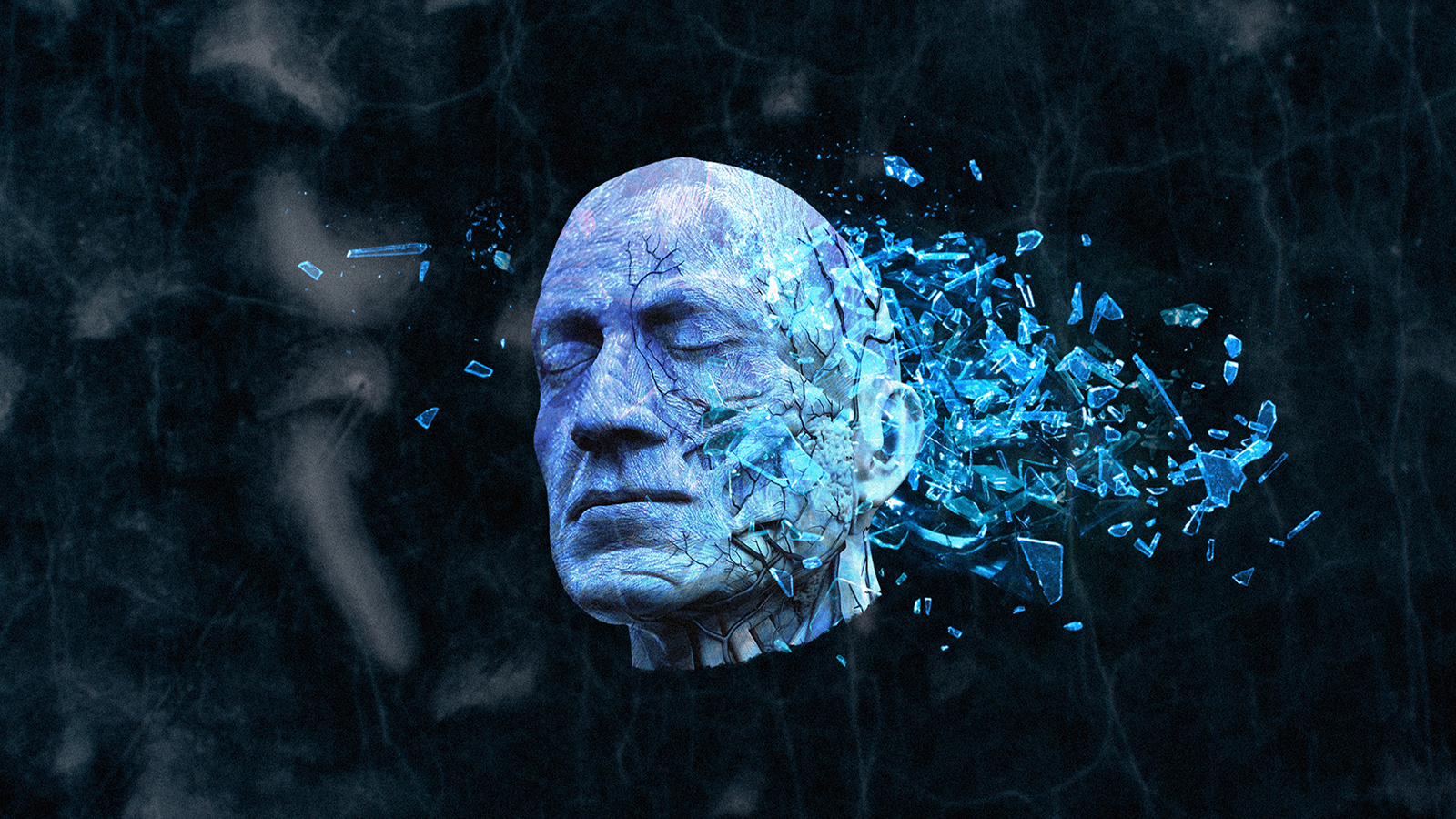5 philosophical problems with immortality

- The idea of living forever is attractive, but does it make any philosophical sense?
- There are more than a few philosophical problems with immortality and the ways some people think it works.
- The nature of identity is central to understanding immortality: Does the same “self” persist after death, and what truly defines us?
The dance with death has long intrigued humanity, and it could be argued that our awareness of our own mortality is what sets us apart from other animals. Albert Camus, the existentialist philosopher, once wrote, “Real generosity towards the future lies in giving all to the present.” But what if the present extended indefinitely, or forever? The idea of immortality, while beguiling, presents its own labyrinth of philosophical dilemmas. So let’s take a look at these five thought-provoking challenges of eternal existence and uncover the profound intricacies of a life without end.
What is death?
You might think that humans have the definition of death covered, but the idea of immortality can make the definition of death fuzzy. Death is typically defined as the irreversible end of biological functions needed to sustain life. From a legal point of view, brain death is often treated as this “point of no return.” This legal line has little bearing on the increasing number of things machines allow the body to do despite brain death. Things get more confusing when you define immortality in terms of life. We haven’t nailed that down either.
So, if immortality is life after death, then a contradiction appears to arise. Death is the end of the road, so how can you keep going? As discussed in a later section, attempts to avoid this by tying death to the end of the physical body, but not of existence, create their own problems. Attempts to keep the physical body going forever have yet to bear fruit.
The difficulties still exist when discussing technological approaches to cheating the Grim Reaper. For example, the field of cryonics seeks to freeze the dead and thaw them out later when medical science may have advanced to a point where they can be resurrected. However, if it is possible to undo death in this way, then we can’t define it as “the undiscovered country from whose bourn no traveler returns.”
If this is the case, were the frozen people ever dead? Are they dead now if they will be alive later?
What is immortality, anyway?
If we’re still debating what life and death are, how can we decide what immortality is? Many conceptions of immortality still involve death. In these models, only part of a person lives on after the rest of them dies. Does it make sense to say that only part of a person is immortal?
Most ideas of an afterlife are fairly explicit about how you have to die, sometimes in the proper way. However, immortality is sometimes a separate concept, suggesting an unending existence. Not all versions of the afterlife imply eternity. For instance, in Buddhism, achieving enlightenment can end the cycle of reincarnation, suggesting that souls don’t remain immortal forever. So, does this mean souls were never truly immortal to begin with?
Modern technology doesn’t duck this problem, either. Life extension through better medicine or slower aging merely delays the end. Is it immortality if you are just indefinitely delaying death? Or is that just “morality plus”?
What gets to live forever?
The problem of identity is another major problem for immortality. What does it mean to say that a person lives forever? The idea of immortality is less appealing if the person who cheats death is not the same individual before and after the cheating. What makes you you? Can that part of you live forever?
If your body defines you, or even part of it, like your brain, then eternal life gets complicated. All known human bodies have declined and decayed. While science has reanimated pigs, a route to doing this for people isn’t quite here yet. Even if it were, the break in consciousness between death and reanimation raises important questions. Does that break mean it isn’t really immortality? Does that affect the identity of the reanimated person?
Other ideas accept that the body is doomed to death and suggest that a part of our essence is immaterial and immortal. This is often referred to as a “soul.” If the soul is the important part of our identity, then the rest of us — mind and body — can die without our “real” selves having to die. However, the soul is immaterial and said to be difficult to detect or interact with, so we can’t be sure that you will always have the same one you were born with, or that you even have one at all. In any case, few philosophers support the idea of souls anymore.
David Hume, in a turn surprisingly similar to ideas put forward by the Buddha 2,000 years prior, argued that there was no enduring self but rather a bundle of ever-changing perceptions. If they are right, then there is no “self,” and it certainly can’t overcome death. However, a “person” who endures after death might share all of your memories and be psychologically continuous with you. This might be “good enough” for some people.
Which of these is right, and how can we say a person who exists after the body’s death is the same person? Are any of them correct? This is also a problem for the technological approaches to immortality. If a person is dead and frozen for 200 years, are they the same person when they are thawed out? There is a big gap to explain. If a brain is uploaded to a computer, is the person in the machine really the same person that used to have a body? If there are such things as souls, what are they doing during these activities?
What are we made of?
In the previous section, the problem of what aspect of us endures raises another question: What are we made of that could last forever? One of the more enduring questions in modern philosophy is the debate between dualism and materialism: Is the mind a separate substance from the body? It plays a central role in any discussion of immortality.
The dualists, influenced by Rene Descartes, argue that the mind and the body are two separate substances. In this view, the mind is often thought of as something not quite material. While exactly how dualism might work is still debated, it creates the possibility of a nonmaterial mind — perhaps analogous to a soul — existing and perhaps enduring after the end of the body.
However, dualism is decidedly unfashionable these days. The most common home for those opposed to dualism is materialism. This school holds that the mind is identical to or at least directly related to the brain. Your consciousness is material by extension.
Materialism leaves fewer spaces for immortality than alternative theories. If the brain is doomed to death and our minds are in our brains, how can we possibly have immortality? If we aren’t fully material beings, how do we work? On the other hand, a dualist version of immortality has problems. If souls are immaterial and can’t interact with anything, then what good is soul-based immortality? Floating around until the end of time, unable to interact with anything, seems like a fate worse than death.
Weak arguments
Despite the abovementioned problems, many thinkers have tried to craft arguments for why immortality must exist. Unfortunately, few of them are convincing. The Western and Eastern religious arguments tend to rely on faith. What these enjoy in popularity, they lack in robustness. As philosophy relies on reason rather than faith, it has to look elsewhere for the validation of immortality or an afterlife.
Plato recounts several arguments for immortality he credited to Socrates. However, they all rely on agreeing to his view of the cosmos, including a belief in The Forms. Very few take that notion seriously anymore. Several philosophers, including Kant, have argued that believing in immortality through an afterlife is beneficial. However, the fact that a belief has benefits does not say anything about whether the contents of that belief exist in “objective” reality. Given that most philosophers these days don’t take dualism seriously, the idea of getting past the material death of the body through nonphysical means is a bit of a dead end.
Moving from arguments to empirical data doesn’t help. The atheistic philosopher A.J. Ayer had a near-death experience similar to those reported by others. This suggested to him that death might not be the end of consciousness. However, he maintained that he didn’t think any particular route to immortality was probable. While parapsychologists might argue that evidence for immortality or an afterlife exists, mainstream science disagrees. While you can debate what science is and argue that parapsychology is waiting for a paradigm shift to validate it in the eyes of other fields, those hoping to get around death shouldn’t hold their breath.
We simply have no good arguments or evidence for living forever — a concept we can’t entirely define anyway. Don’t be too depressed. You have the rest of your life to ponder the question (and, just maybe, an indefinitely long time after).





